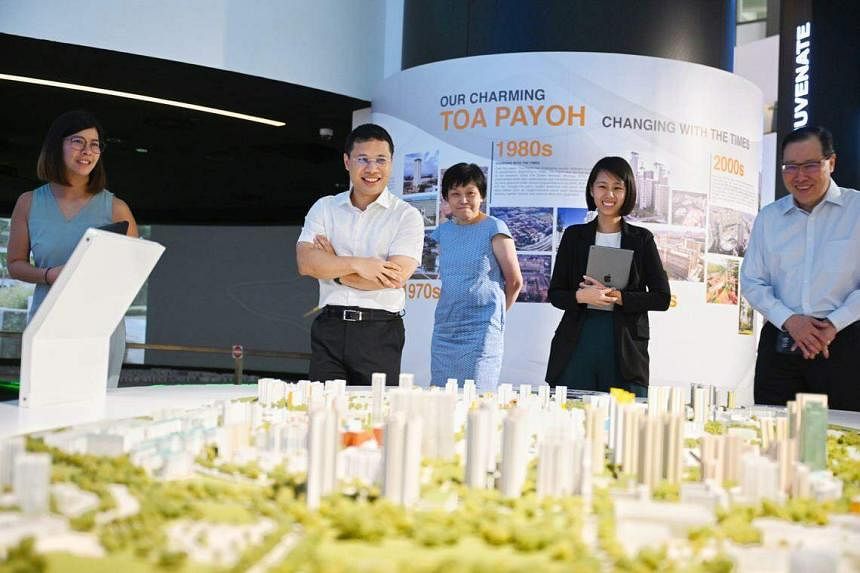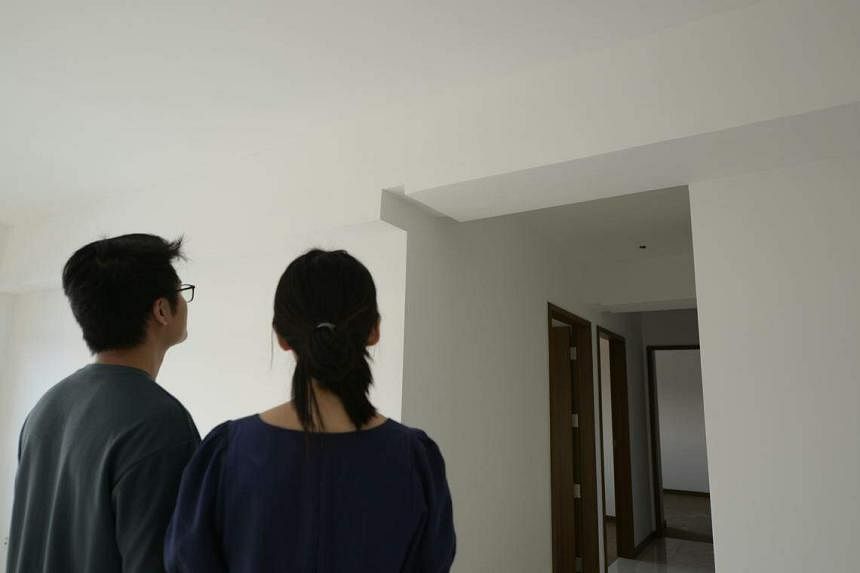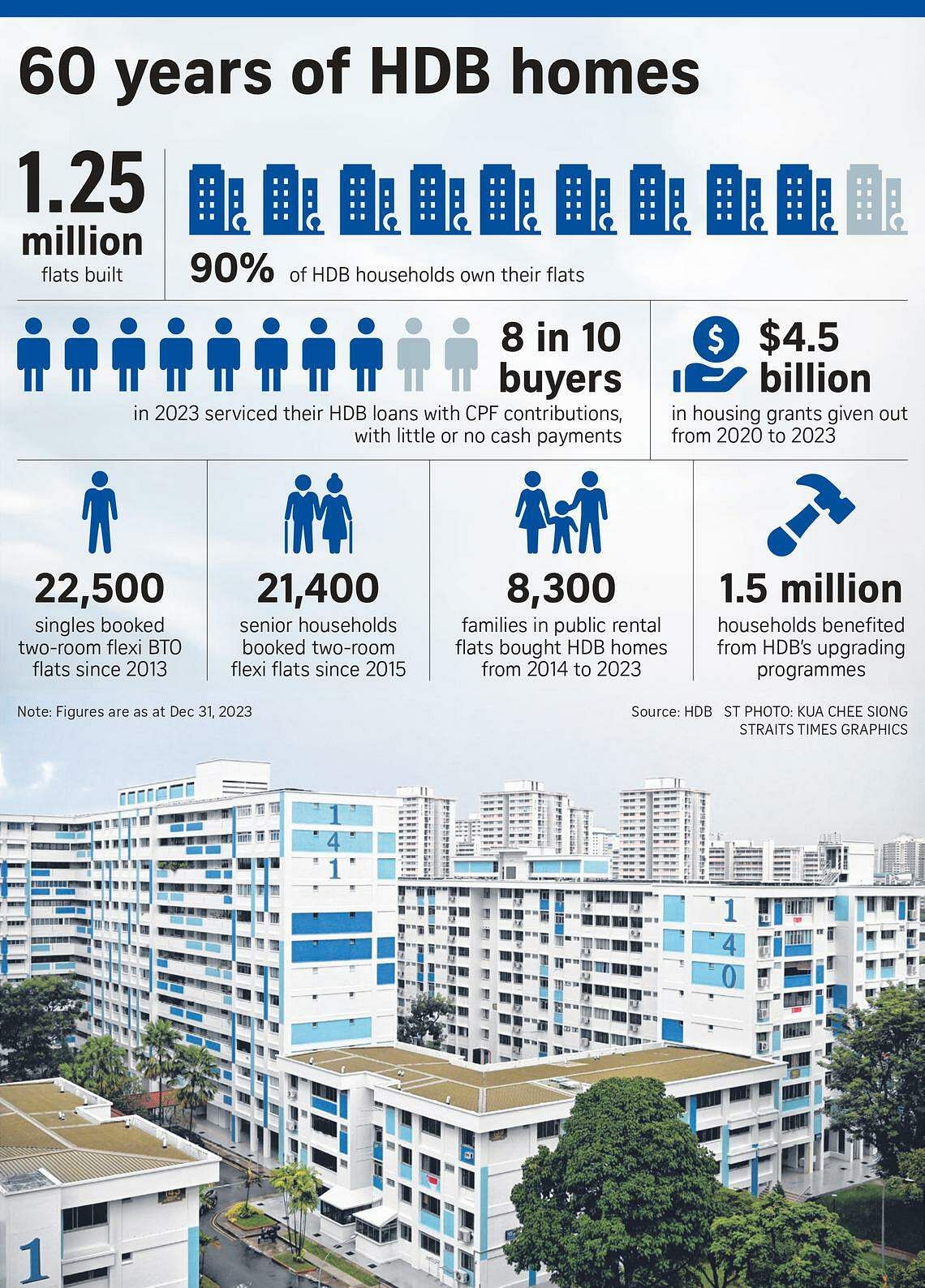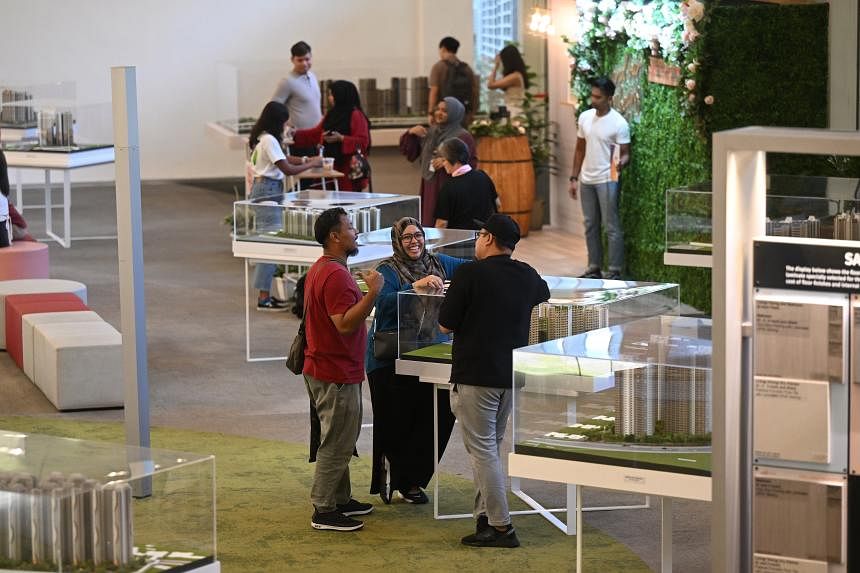SINGAPORE - The Housing Board gave out more than $4.5 billion in housing grants to buyers of new or resale flats from 2020 to 2023.
In those four years, around 63,700 households received the Enhanced Central Provident Fund (CPF) Housing Grant, which gives up to $80,000 to families buying their first new or resale flat.
Providing updates on other grants on Feb 12, HDB said 41,600 households also tapped the CPF Housing Grant, which gives first-time buyers of two- to four-room HDB resale flats $80,000 in grants, while those who buy five-room or larger resale units can get $50,000.
Around 44,700 households received up to $30,000 under the Proximity Housing Grant, for buyers of resale flats who choose to live with or near their parents or children.
These grants were either introduced or enhanced in recent years. For instance, the CPF Housing Grant was increased in 2023 to support Singaporeans who wanted to buy resale flats but found prices too high. Buyers of two- to four-room resale flats previously got $50,000, while the grant for five-room or larger units was $40,000.
The Enhanced CPF Housing Grant was rolled out in 2019 to streamline two older grants, while the Proximity Housing Grant was increased from $20,000 to $30,000 in 2018.
HDB told The Straits Times that it gave out $1.02 billion in housing grants in 2020. This increased to $1.15 billion in 2021, and dipped slightly in 2022 to $1.13 billion.
In 2023, the public housing agency handed out $1.22 billion in housing grants.
HDB noted that in 2023, close to eight in 10 buyers serviced their HDB loans with CPF contributions, with little or no cash payments.
“This is a clear and concrete measure of housing affordability not found in many other countries,” HDB said on Feb 12, which marks 60 years of the Home Ownership Scheme.
In 1964, HDB started selling flats to citizens on a 99-year lease while providing housing subsidies and loans.
Today, HDB has built 1.25 million flats, and houses about 80 per cent of the resident population, of which about 90 per cent own their units.
National Development Minister Desmond Lee said: “In the years ahead, we will continue to ensure that our housing remains affordable, inclusive and fair, and reflects the changing and evolving society.”
Mr Lee, who spoke to reporters at the HDB Hub in Toa Payoh on Feb 8, said the authorities are working towards the roll-out of the new classification of flats in October.
Instead of demarcating estates as mature or non-mature, new Build-To-Order (BTO) flats will be categorised into Prime, Plus and Standard flats from the October sales exercise. BTO units in choicer locations will fall under the Prime and Plus categories, which come with stricter resale conditions.
Mr Lee added that the Government is studying more areas to support the vulnerable and those with disabilities, as well as singles, and will engage Singaporeans when these are ready.
Turning to its upgrading efforts, HDB said more than 1.5 million households benefited from one or more of such programmes by the end of 2023.

These included the Home Improvement Programme, which fixes issues such as spalling concrete and ceiling leaks in ageing flats; the Enhancement for Active Seniors programme, which provides elder-friendly fittings to homes; the Lift Upgrading Programme to provide lift access on every floor where feasible; and the Neighbourhood Renewal Programme to revamp blocks and precincts.
HDB said it also provides funding to residents who wish to spearhead initiatives to encourage bonding in community public spaces.
It had given out more than $1.1 million across 228 projects by 2023 under the Lively Places Programme. Such initiatives include the establishment of pet parks, community cafes, allotment gardens and community libraries.
Ms Marissa Chua, 30, who works in finance, said the housing grants she and her husband received made the purchase of their four-room resale flat more affordable. They received $80,000 under the CPF Housing Grant, and a Proximity Housing Grant of $20,000.
“We were able to fully offset our down payment with the grants and our CPF Ordinary Account savings,” said Ms Chua, who bought her Clementi flat in August for about $750,000.
“As we didn’t need to touch our cash savings, we could spend more on renovations such as choosing better tiles and materials that are more durable,” she added.
Impact of Covid-19 on Tengah town, update on Vers
Asked about the issues faced by the first batch of residents in Tengah, Mr Lee said Tengah is the first new town since Punggol was launched more than two decades ago.
“Every time we launch a new town, there are issues that are associated with launching a new town, but Covid-19 had an additional impact on Tengah, as well as on our builders and on the service providers,” he said.
Tengah, planned as an eco-friendly and car-lite “forest” town, is the first HDB estate to provide a centralised cooling system as an option for home owners.
The Straits Times reported earlier that the cooling system had run into teething problems after the first batch of residents collected their keys at the end of last August, with some saying the air-conditioning in their units was not cold enough.

Some residents had also received the keys to their flats when the cooling system was not yet installed.
Utilities company SP Group had attributed these issues to an accelerated construction schedule by HDB to hand over units to residents, following delays due to Covid-19.
Residents had also complained about the inaccessibility of public transport in the new town. An additional bus service to Jurong Town Hall Bus Interchange was added in November, with a new bus interchange slated to open in 2024.
Mr Lee said HDB is working closely with service providers to ensure that any issues Tengah residents are facing are addressed.
“Please be assured that they are working hard to make sure this new town is successful and comfortable for all residents,” he said.
Mr Lee was also asked for an update on the future Voluntary Early Redevelopment Scheme (Vers), where owners of flats aged 70 years and older can vote for the Government to buy back their homes before their leases run out.
Responding, he said the authorities are still studying the policy as there are many details and processes that need to be put in place.
“We have to plan Vers very carefully because it will be the start of rejuvenation and the reimagination of what public housing means to Singaporeans,” he said.
On rising prices in the HDB resale market and the record 74 million-dollar flat transactions in January, Mr Lee said both HDB and private property prices have been climbing due to the supply-demand imbalance caused by the Covid-19 pandemic, among other factors.
“We have been working hard steadily over the last few years to stabilise the property market and ensure that we inject supply as well as moderate demand,” he said.
HDB resale prices rose 1.5 per cent in January, flash data from real estate portals Singapore Real Estate Exchange and 99.co showed. It was the first time prices had climbed more than 1 per cent since April 2023.
Mr Lee said the authorities have put in place three rounds of property cooling measures since the Covid-19 pandemic struck, and made efforts to increase the supply of public and private homes. He added that quarterly data released by HDB and the Urban Redevelopment Authority has shown that resale prices have been stabilising.
“We will keep a very close eye on the state of the property market and will not hesitate to take measures if necessary.”



